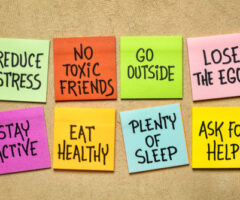The Relationship Between Your Heart And Your Sleep Schedule

Just as diet and exercise are important components to heart health, sleep is too. But it’s often overlooked by people. Sleep helps regulate your body’s internal clock and hormone balance, says Dr. Lawrence Epstein, associate physician at Harvard-affiliated Brigham and Women’s Hospital. Consistent sleep may even help reduce the risk of atherosclerosis, a buildup of fatty plaque in your arteries that can lead to cardiovascular disease.
What Are Some Health Conditions Linked To Lack Of Sleep?
There are many health conditions that can be linked to lack of sleep, such as high blood pressure, obesity, diabetes, and depression. It’s also associated with more heart attacks and other cardiovascular events. People with obstructive sleep apnea, for example, stop breathing repeatedly during their sleep, which increases their risk of high blood pressure and other serious health problems. The same is true for narcolepsy, which causes the brain to struggle to control sleep and wake cycles. In addition, research shows that even mild sleep problems can boost inflammation, which increases your risk for heart disease. Sleep apnea is another common problem that can hurt your heart health. It causes the airway to slack during sleep, causing you to stop breathing repeatedly, often hundreds of times during sleep. These lapses in breath raise your body’s levels of stress hormones, which can certainly lead to heart problems. The good news is that you can often take various steps to improve your sleep and reduce your risk of developing health conditions that may hurt your heart.
 How Much Sleep Do I Need?
How Much Sleep Do I Need?
The amount of sleep you need can vary from person to person. It depends on age, gender, lifestyle, and other factors. Getting enough sleep helps your body rest, repair, and replenish energy levels. It also regulates hormones that affect blood pressure and cholesterol levels. In general, adults should aim for 7 to 8 hours of sleep a night. Some people need more or less than that, but this guideline is a good rule of thumb.
What Can I Do To Get Better Sleep?
Getting enough sleep is essential for good health. But how you get it is also important. A consistent sleep schedule is a great way to get started as it will help you fall asleep and wake up at the same time every day – even on the weekends. Similarly, exercise is another excellent means to improve your sleep, especially when it’s done consistently. Not only can it help you fall asleep quicker, but it’ll also make you feel more refreshed and even increase your overall energy level. The best time to exercise is the time that works for you, whether that’s in the morning or late afternoon. However, exercising too close to bedtime may negatively impact your sleep schedule, so just make sure your routine ends more than an hour before bedtime.
 Contact Us
Contact Us
Here at Heart & Sleep Clinics of America, we help people recognize heart disease symptoms in addition to offering heart disease recovery and prevention services. Our expert team of heart and sleep specialists are available help you overcome any obstacles that are keeping you from sleeping well and enjoying your life again. If you or someone you love have been diagnosed with any of the symptoms we talked about, contact us today to schedule your consultation.


